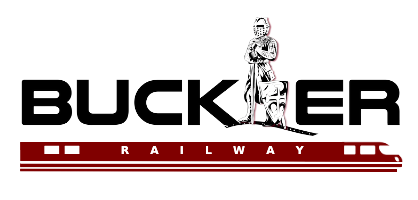1. Structure of Turnout
A single turnout usually consists of a frog, a switch, two switch points, two guard rails, straight and curved closure rails, stock rails and switch stand. In addition, relative rail accessories include switch rods, combination slide plates, braces, tie plate, block and the others which may be varied to meet specific track requirements also play the important roles.
2. Classification of Turnout
a. According to function and usage, turnout is generally categoried into simple turnout, equilateral turnout, three-way turnout, double crossover and double slip switches. Of them the most common turnout is simple turnout.
b. According to different weights of steel rails, turnouts may be divided into different types. In China there are various types of steel rail, which includes 43kg/m, 50 kg/m, 60 kg/m, 75 kg/m and etc. Meanwhile, correspondent turnouts are designated to meet these tracks. In North America, types of steel rail are 12AS, 20AS, 25AS, 30AS, 40AS, 60AS, 80AS, 85AS, 90RA, 100RA, 100RE, 115RE, 119RE, 132RE, 133RE, 136RE, 141RE and etc. So correspondent turnouts are needed to design and produce out for them.
c. According to Number, all the turnouts are numbered to stand for different usages. Big Number usually represents high speed track for passengers or heavy-duty track. Small Number usually represents special track of industrial and mining enterprises or freight stations. In China turnouts touch on No.6,No 7,No 8,No 9,No 12,No 18,No 30,No 38 and No 42. In North America, all the frogs of turnouts are numbered to stand for different usages. They include Frog No. 4, Frog No.5, Frog No.6, Frog No.7, Frog No.8, Frog No.9, Frog No.10, Frog No.11, Frog No.12 and etc.
d. According to different types of rail sleepers, turnouts may be divided into different types. They include wooden sleeper turnout, concrete sleeper turnout and monolithic concrete bed turnout.
3. Frog of Turnout
Railway frog is an important key component of turnout, it is necessary to lay focus on explanation.
Railway frog consists of two point rails, two wing rails, two guard rail (also named check rail), tie plate, blocks, other accessories and etc. According to different production technologies, Frog may be classified into different types. They may be rail bound welded frog (RBW), welded boltless manganese frog (WBM), welded spring manganese frog (WSM), rigid bolted frog, rail bound manganese steel frog (RBM), solid manganese flat top steel frog, solid self guarded manganese steel frog (SSGM), (partial) flange bearing frog, jump frog, moveable point frog (MPF).
During use of railway frog, many problems are gradually emerged, for example, rail abrasion, rail cracks. In order to solve them and lengthen life of frog, manganese steel is popularly used to be as raw materials for frog production with adopting advanced technology of explosive depth hardened manganese steel (EDH).
4. AREMA 115RE & 132RE Turnout and Frog
Recently we successfully manufacture products of turnout and frog for AREMA 115RE & 132RE widely used in North American area through researches and developing. Welcome to leave message to us to get the price!



